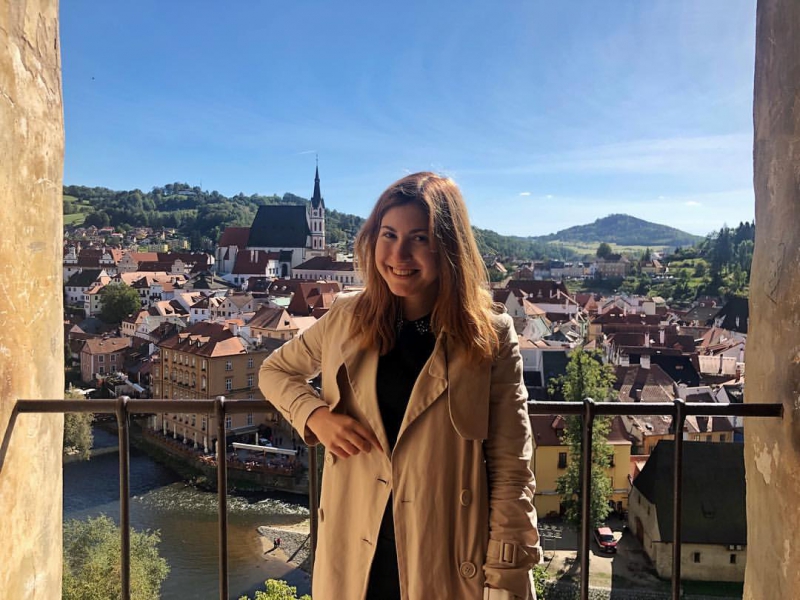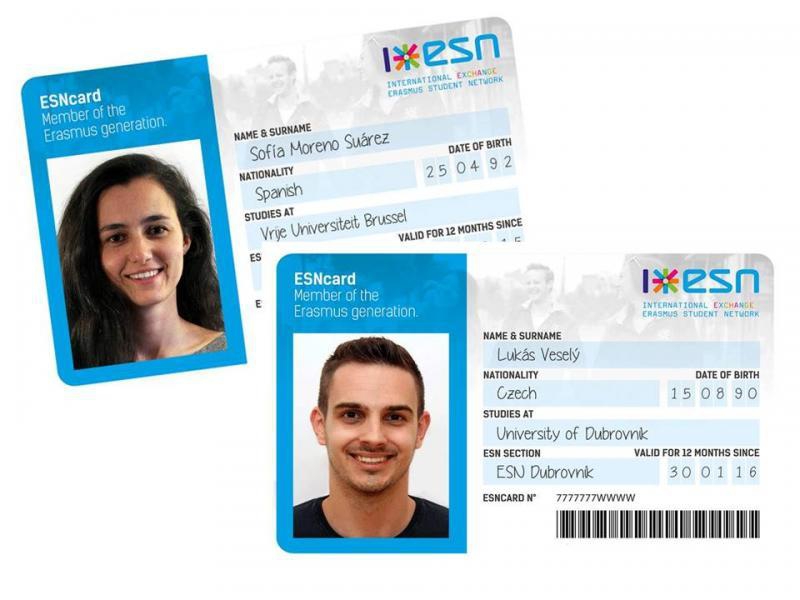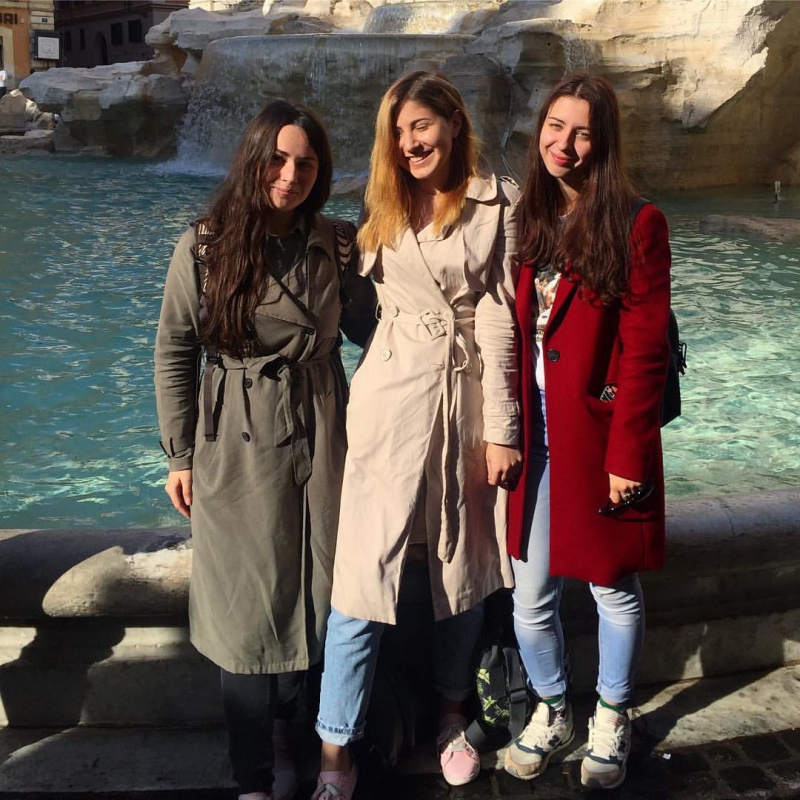Master's student
Student Exchange in Europe and Why You Must Travel
In my previous post, I have mentioned that a month in Pilsen is something like a temporal paradox. Additionally, I have recently found out that my small Czech town is a travel portal or, without fancy words, it is a highway to available trips.

If you are hesitating about studying abroad, think about the opportunities it gives to you besides new educational challenges. Obviously, to travel around Europe is one of the most tempting advantages, which hide behind the study experience.
Since I am living and studying in the heart of Europe, I have an ESN card (The ESNcard is the membership card of the Erasmus Student Network. Its primary objective is to support and give opportunities to international students during and after their exchange period), which allows me to buy plane, bus and train tickets with considerable discounts, I have an unspoken right to dispute about an allure of traveling.

Owing to my consistent class schedule, I am free from Thursday evening till Monday morning each week. For this reason, I can go abroad almost every weekend. This is everyone’s life goal, isn’t it? Before I begin to describe all the benefits of traveling, I want to touch on the topic of money, because, if you omit all your personal issues, money is the main obstacle that prevents people from travelling.
As an exchange student, you can get a scholarship. It is not a jackpot; nevertheless, it is enough to live well without complaining. I will give you some numbers to illustrate my point.
My accommodation costs 8000 rubles per month (~105 €). You can live in an even cheaper dormitory, but I prefer to have only one roommate and a shared bathroom for 4 girls, not more. So, it's up to you to choose. In Czech, food is pretty affordable. A lunch costs less than 150 rubles (~2−3 €). Yes, it has zero Michelin stars, yet it is similar to comfort home-cooked food. A monthly public transport ticket costs 450 rubles (~6 €), and I can easily go to Prague for 70 rubles (~1 €). Inevitably, a trip to a nightclub or a bar costs an average of 500 rubles (~8 €).
Thus, approximately 25,000−30,000 rubles / 400 € per month is enough to live a normal life in the Czech Republic. Nevertheless, I had some savings before I came to Pilsen because I kept in mind my future traveling prospects.
Anyway, if you can say "no" to an everyday cappuccino or extra glass of wine, you can raise money for one or two trips because exchange student status strongly will help you to do it. Be sure, discounts will become your best fellow traveler.
The ESN card cooperates with Ryanair, which provides you with lowcost flights, (1500 rubles / 20 € to Vienna, Rome, Krakov and so on). Flixbus and RagioJet, bus companies, also allow traveling to the nearest cities for a little money (800 rubles/ 10 €). To go by bus in Europe is surprisingly comfortable: the roads are good, seats are cozy, and there is free Wi-Fi

One more gift is an ISIC card. As a Russian student, I was so skeptical about ordering this card, but now I have truly understood its value. Even if you are not going on exchange, make sure you get it. An ISIC card costs about 600 rubles / 8 €, and it opens the door to free access to museums, theatres and cultural centers around the world, discounts on air travel, accommodation in hotels and hostels, discounts in cafes, restaurants, and bars, discounts on purchases in stores and online orders. Believe me, it will save you a lot!
Those of you who are not students anymore, have you ever heard about IYTC (International Youth Travel Card)? If you are under 30, you can get this card and enjoy the cheapest way to travel. Here is a link for you to get it right now!
By the way, ESN and ISIC cards give discounts to hostels though I prefer to use booking.com to receive a lot of vouchers from their partners as a gift after booking. If you think about your trip in advance, you won't overpay for your bed & breakfast.
In that way, travel seems to be affordable.
I don't actually know, maybe traveling is overhyped and romanticized, but we only live once, so why not combine studying and exploring the world.
When I am traveling, I feel pressure to change my life — at least a little. I always think that I should learn new things about myself and the world, and probably I will not fit in when I return home. I obstinately treat traveling like a way to find my place in the world. I truly believe that going to a place you’ve never been before is an excellent tool for personal growth — language barriers, culture shock, getting lost, loneliness, and anxiety, — all these factors make journeys better and more effective as an exercise for training your soft skills. Besides, travel gives you the freedom to do whatever you want, whenever you want, to try new activities and expand your horizons.

Here is my short list of lessons I have learned while I have been living abroad and have had a chance to travel.
1. Appreciate failures
Let be honest, no matter how rebellious we are, no one likes to make mistakes. Often a mistake is a reason to give up. Although while I travel, every single oversight or deviation from the plan turns into a unique story. I never tell you that I arrived at the station in advance, but I always want to share the story of how all the chocolate paste flowed on me from the trdelnik in the central Prague square or how I was fined 250 euros in public transport because I mixed up the tickets.
2. Treat yourself better
I know that to save money is crucial while you are traveling, but my first night in a budget hostel in Prague taught that your comfort comes first. Sometimes it is better to pay a couple of euros more to get a better located or equipped hostel, or it is more suitable to order more expensive chops instead of a cheeseburger.
3. It is good to have foreign friends.
They will explain to you how to find local and not overpriced places, where it is better to start your journey and how not to be fooled by some touristic traps. Definitely, they will teach you some strong words in their native language to survive!
Well, if you are thinking about taking part in an exchange program, you should consider that studying abroad is not about boring lectures and endless homework, it's about a new world, adventures, and essential experience and memories.
